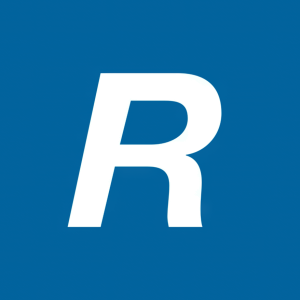DB-OTO Results in the New England Journal of Medicine Showcase Dramatic and Sustained Improvements in Hearing and Speech Perception in Children with Profound Genetic Hearing Loss
Rhea-AI Summary
Regeneron (NASDAQ: REGN) reported updated pivotal CHORD trial results for investigational gene therapy DB-OTO for profound OTOF-related hearing loss, published in New England Journal of Medicine and presented at AAO-HNSF on Oct 12, 2025.
Key findings: 11 of 12 participants had clinically meaningful hearing improvements; 3 achieved normal hearing sensitivity; trial met primary endpoint with 9 participants ≤70 dBHL at week 24; auditory brainstem response achieved in 9 participants; stability or continued improvement observed up to 72 weeks. No DB-OTO-related adverse findings reported. U.S. regulatory submission planned later in 2025, pending FDA discussions.
Positive
- 11 of 12 participants showed clinically meaningful hearing improvements
- 3 participants achieved normal hearing sensitivity (whisper detection)
- Trial met primary endpoint: 9 participants ≤70 dBHL at week 24
- 9 participants demonstrated ABR ≤90 dB (key secondary endpoint)
- Hearing stability or improvement up to 72 weeks in 8 participants
- No DB-OTO-related adverse findings reported across 12 participants
Negative
- Two serious adverse events occurred: cochlear implant surgery and a vaccination
- Some participants had transient vestibular events (nystagmus, nausea, dizziness)
- U.S. regulatory submission timing uncertain—pending FDA discussions in 2025
Insights
DB-OTO's pivotal CHORD data show broad, durable hearing gains and a planned U.S. regulatory filing later in the year.
These results describe a single intracochlear dose of DB-OTO producing clinically meaningful hearing improvement in 11 of 12 pediatric participants, including three achieving normal hearing sensitivity and nine meeting the primary endpoint at
The regulatory path is explicit and near-term: a U.S. regulatory submission is planned later this year pending FDA discussions, and DB-OTO already holds multiple FDA designations (Orphan Drug, Rare Pediatric Disease, Fast Track, and RMAT) plus EMA Orphan status. Monitor filing timing, FDA feedback, and confirmatory safety/efficacy in larger cohorts and longer follow-up over the next 6–18 months to assess whether durability and safety scale beyond this 12-participant dataset.
Nearly all participants (11 of 12) experienced clinically meaningful hearing improvements, including three who achieved normal hearing; eight with longer follow-up showed stability or continued improvement in their hearing
Among three who completed speech assessments, all showed significant improvement with one able to identify one- and two-syllable words with no visual cues and respond to distant sounds and speech in noisy environments
Latest DB-OTO data presented at AAO-HNSF; U.S. regulatory submission planned later this year, pending discussions with the FDA
TARRYTOWN, N.Y., Oct. 12, 2025 (GLOBE NEWSWIRE) -- Regeneron Pharmaceuticals, Inc. (NASDAQ: REGN) today announced updated data for their investigational gene therapy DB-OTO for profound genetic hearing loss due to variants of the otoferlin (OTOF) gene were published in The New England Journal of Medicine and presented during an oral presentation at the annual American Academy of Otolaryngology-Head and Neck Surgery (AAO-HNSF) meeting. These latest results from the pivotal CHORD trial show 11 out of 12 participants have experienced clinically meaningful hearing improvements, including 3 who achieved normal hearing levels. Additionally, eight participants with longer follow-up showed stability or continued improvement in their hearing, and among three who completed speech assessments, all showed significant improvement.
“Until now, genetic OTOF-related hearing loss was considered permanent, which is why many of us have dedicated our careers to this field,” said Lawrence R. Lustig, M.D., Chair of the Department of Otolaryngology-Head and Neck Surgery at the Columbia University College of Physicians and Surgeons and a trial investigator. “This registrational data set showcases consistent, rapid and robust responses to DB-OTO, and for those followed to later timepoints, we’ve seen hearing stability as well as continued improvement in understanding of speech. These results are even more poignant when viewed by the families – as one of the parents said, their situation is now ‘unimaginable’ from one year ago. This truly represents a new era in the treatment of hearing loss.”
The CHORD trial evaluated pediatric participants with profound hearing loss due to variants of the OTOF gene that received a single administration of DB-OTO via intracochlear infusion. Among 12 participants (aged 10 months to 16 years), nine received the gene therapy unilaterally (in one ear) and three received it bilaterally (in both ears). The surgical procedure to administer DB-OTO leverages an approach similar to cochlear implantation, which enables use in young infants.
Nearly all participants (11 of 12; 14 of 15 treated ears) demonstrated improved hearing, responding within weeks of treatment. As published and presented, the trial met the primary endpoint with 9 participants experiencing hearing improvements at a threshold of ≤70 decibel hearing level (dBHL) as assessed by behavioral pure tone audiometry (PTA) at week 24. This threshold corresponds to a clinical standard that typically does not require cochlear implantation and enables natural acoustic hearing. Notably, 6 could hear soft speech without assistive devices, and 3 were further able to detect whispers (achieving normal hearing sensitivity). One participant who did not meet the primary PTA endpoint at week 24 further improved to achieve “nearly normal” hearing sensitivity at week 48. Nine participants also demonstrated an auditory brainstem response (ABR) at ≤90 decibels (dB), achieving the trial’s key secondary endpoint.
Hearing improvements remained stable or continued to improve in 8 participants who had follow-up visits of ≥36 weeks (up to 72 weeks). Speech development was also assessed in the 3 participants who were followed at least 48 weeks and all showed significant improvements. One of these participants demonstrated the ability to identify one- and two-syllable words with no visual cues and could respond to distant sounds and speech in noisy environments.
Across all 12 participants, both the surgical procedure and DB-OTO were well tolerated, and there were no DB-OTO-related adverse findings reported. Two participants experienced serious adverse events: one was attributed to a cochlear implant surgical complication and the other to a recent vaccination. Some participants experienced transient post-surgical vestibular adverse events (e.g., nystagmus, nausea, dizziness, vomiting), all of which fully resolved.
The U.S. regulatory application for DB-OTO is planned for later this year, pending discussions with the U.S. Food and Drug Administration (FDA). DB-OTO received Orphan Drug, Rare Pediatric Disease, Fast Track and Regenerative Medicine Advanced Therapy designations from the FDA. The European Medicines Agency also granted Orphan Drug Designation.
The potential use of DB-OTO for OTOF-related hearing loss is currently under clinical investigation, and its safety and efficacy have not been evaluated by any regulatory authority.
About OTOF-related Hearing Loss
Permanent congenital hearing loss (present at birth) is a significant unmet medical need that affects approximately 1.7 out of every 1,000 children born in the U.S. and approximately half of these cases have genetic causes. Notably, otoferlin-related hearing loss is ultra-rare, affecting 20-50 newborns per year in the U.S. This specific condition is caused by variants in the OTOF gene, which lead to a lack of a functional otoferlin protein that is critical for the communication between the sensory cells of the inner ear and the auditory nerve.
About the CHORD Trial
The CHORD trial is a registrational Phase 1/2 multicenter, open-label trial to evaluate the safety, tolerability and efficacy of DB-OTO in infants, children and adolescents with OTOF-related hearing loss. The trial is currently enrolling children (<18 years of age) across sites in the U.S., United Kingdom, Spain and Germany.
CHORD is being conducted in two parts. In the initial dose-escalation cohort (Part A), participants receive a single intracochlear infusion of DB-OTO in one ear. In the expansion cohort (Part B), participants receive DB-OTO in both ears at the selected dose from Part A.
Hearing improvements were assessed by PTA and ABR. PTA is the gold standard measurement of hearing sensitivity and is measured through behavioral responses to sound (e.g., turning head towards sound) that is emitted at different intensity levels and measured in dB. ABR corroborates these behavioral responses, serving as an objective confirmation of hearing function, and is measured through recording electrical brainstem responses to sound emitted at different intensity levels measured in dBs. At baseline, all participants had profound hearing loss (behavioral PTA), and no electrophysiological (ABR) responses at maximum sound levels.
Additional information about the trial, including enrollment, can be obtained by contacting clinicaltrials@regeneron.com.
About DB-OTO and the Regeneron Auditory Program
DB-OTO is an investigational cell-selective, dual adeno-associated virus (AAV) vector gene therapy designed to provide durable, physiological hearing to individuals with profound, congenital hearing loss caused by variants of the OTOF gene. The treatment aims to deliver a working copy of the OTOF gene to replace the non-functional otoferlin protein using a modified, non-pathogenic virus that is delivered via an infusion into the cochlea under general anesthesia (similar to the procedure used for cochlear implantation). In this gene therapy, the newly introduced OTOF gene is under the control of a proprietary cell-specific Myo15 promoter, which is intended to restrict expression only to hair cells that normally express otoferlin.
In addition to OTOF, Regeneron is committed to investigating several other targets for genetic forms of hearing loss.
About Regeneron
Regeneron (NASDAQ: REGN) is a leading biotechnology company that invents, develops and commercializes life-transforming medicines for people with serious diseases. Founded and led by physician-scientists, our unique ability to repeatedly and consistently translate science into medicine has led to numerous approved treatments and product candidates in development, most of which were homegrown in our laboratories. Our medicines and pipeline are designed to help patients with eye diseases, allergic and inflammatory diseases, cancer, cardiovascular and metabolic diseases, neurological diseases, hematologic conditions, infectious diseases, and rare diseases.
Regeneron pushes the boundaries of scientific discovery and accelerates drug development using our proprietary technologies, such as VelociSuite®, which produces optimized fully human antibodies and new classes of bispecific antibodies. We are shaping the next frontier of medicine with data-powered insights from the Regeneron Genetics Center® and pioneering genetic medicine platforms, enabling us to identify innovative targets and complementary approaches to potentially treat or cure diseases.
For more information, please visit, www.Regeneron.com or follow Regeneron on LinkedIn, Instagram, Facebook or X.
Forward-Looking Statements and Use of Digital Media
This press release includes forward-looking statements that involve risks and uncertainties relating to future events and the future performance of Regeneron Pharmaceuticals, Inc. (“Regeneron” or the “Company”), and actual events or results may differ materially from these forward-looking statements. Words such as “anticipate,” “expect,” “intend,” “plan,” “believe,” “seek,” “estimate,” variations of such words, and similar expressions are intended to identify such forward-looking statements, although not all forward-looking statements contain these identifying words. These statements concern, and these risks and uncertainties include, among others, the nature, timing, and possible success and therapeutic applications of products marketed or otherwise commercialized by Regeneron and/or its collaborators or licensees (collectively, “Regeneron’s Products”) and product candidates being developed by Regeneron and/or its collaborators or licensees (collectively, “Regeneron’s Product Candidates”) and research and clinical programs now underway or planned, including without limitation the investigational gene therapy DB-OTO; the likelihood, timing, and scope of possible regulatory approval and commercial launch of Regeneron’s Product Candidates and new indications for Regeneron’s Products, such as DB-OTO for the treatment of otoferlin-related hearing loss; uncertainty of the utilization, market acceptance, and commercial success of Regeneron’s Products and Regeneron’s Product Candidates and the impact of studies (whether conducted by Regeneron or others and whether mandated or voluntary), including the studies discussed or referenced in this press release, on any of the foregoing or any potential regulatory approval of Regeneron’s Products and Regeneron’s Product Candidates (such as DB-OTO); the ability of Regeneron’s collaborators, licensees, suppliers, or other third parties (as applicable) to perform manufacturing, filling, finishing, packaging, labeling, distribution, and other steps related to Regeneron’s Products and Regeneron’s Product Candidates; the ability of Regeneron to manage supply chains for multiple products and product candidates and risks associated with tariffs and other trade restrictions; safety issues resulting from the administration of Regeneron’s Products and Regeneron’s Product Candidates (such as DB-OTO) in patients, including serious complications or side effects in connection with the use of Regeneron’s Products and Regeneron’s Product Candidates in clinical trials; determinations by regulatory and administrative governmental authorities which may delay or restrict Regeneron’s ability to continue to develop or commercialize Regeneron’s Products and Regeneron’s Product Candidates; ongoing regulatory obligations and oversight impacting Regeneron’s Products, research and clinical programs, and business, including those relating to patient privacy; the availability and extent of reimbursement or copay assistance for Regeneron’s Products from third-party payors and other third parties, including private payor healthcare and insurance programs, health maintenance organizations, pharmacy benefit management companies, and government programs such as Medicare and Medicaid; coverage and reimbursement determinations by such payors and other third parties and new policies and procedures adopted by such payors and other third parties; changes in laws, regulations, and policies affecting the healthcare industry; competing drugs and product candidates that may be superior to, or more cost effective than, Regeneron’s Products and Regeneron’s Product Candidates (including biosimilar versions of Regeneron’s Products); the extent to which the results from the research and development programs conducted by Regeneron and/or its collaborators or licensees may be replicated in other studies and/or lead to advancement of product candidates to clinical trials, therapeutic applications, or regulatory approval; unanticipated expenses; the costs of developing, producing, and selling products; the ability of Regeneron to meet any of its financial projections or guidance and changes to the assumptions underlying those projections or guidance; the potential for any license, collaboration, or supply agreement, including Regeneron’s agreements with Sanofi and Bayer (or their respective affiliated companies, as applicable), to be cancelled or terminated; the impact of public health outbreaks, epidemics, or pandemics on Regeneron's business; and risks associated with litigation and other proceedings and government investigations relating to the Company and/or its operations (including the pending civil proceedings initiated or joined by the U.S. Department of Justice and the U.S. Attorney's Office for the District of Massachusetts), risks associated with intellectual property of other parties and pending or future litigation relating thereto (including without limitation the patent litigation and other related proceedings relating to EYLEA® (aflibercept) Injection), the ultimate outcome of any such proceedings and investigations, and the impact any of the foregoing may have on Regeneron’s business, prospects, operating results, and financial condition. A more complete description of these and other material risks can be found in Regeneron’s filings with the U.S. Securities and Exchange Commission, including its Form 10-K for the year ended December 31, 2024 and its Form 10-Q for the quarterly period ended June 30, 2025. Any forward-looking statements are made based on management’s current beliefs and judgment, and the reader is cautioned not to rely on any forward-looking statements made by Regeneron. Regeneron does not undertake any obligation to update (publicly or otherwise) any forward-looking statement, including without limitation any financial projection or guidance, whether as a result of new information, future events, or otherwise.
Regeneron uses its media and investor relations website and social media outlets to publish important information about the Company, including information that may be deemed material to investors. Financial and other information about Regeneron is routinely posted and is accessible on Regeneron's media and investor relations website (https://investor.regeneron.com) and its LinkedIn page (https://www.linkedin.com/company/regeneron-pharmaceuticals).
| Contacts: Media Relations Tammy Allen Tel: +1 914-306-2698 tammy.allen@regeneron.com | Investor Relations Mark Hudson Tel: +1 914-847-3482 mark.hudson@regeneron.com |







